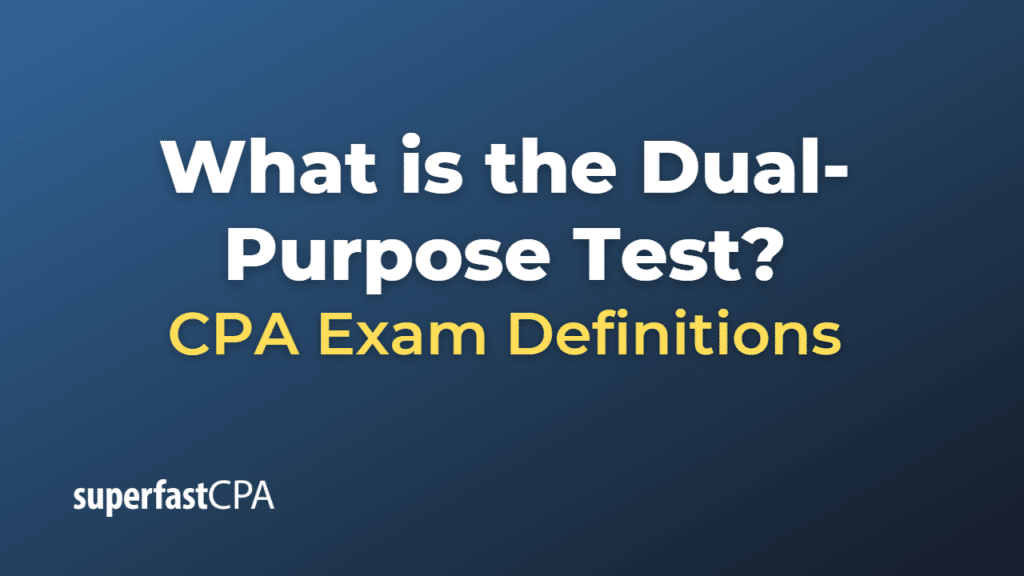Dual-Purpose Test
The dual-purpose test is a criteria often used in tax law to determine whether an expenditure can be deducted as a business expense when it also has a personal benefit.
The rule suggests that if an expense is incurred for both business and personal reasons, it can be deducted as a business expense only if the primary purpose of the expenditure is business-related. The test usually involves an analysis of the facts and circumstances surrounding the expenditure.
For instance, if a business owner travels to a location primarily for business purposes, but also takes some time for sightseeing or leisure activities, the travel expenses can still potentially be deducted as business expenses. However, if the primary purpose of the trip was personal (such as a vacation), then the associated travel costs wouldn’t be deductible.
It’s important to note that tax laws and regulations vary by country and even within different jurisdictions in the same country. Therefore, it’s crucial to consult with a tax professional or accountant for advice specific to your situation.
Example of the Dual-Purpose Test
Imagine you’re a business owner and you decide to attend a business conference in New York. You live in Los Angeles, so you need to travel across the country for the event. You’re interested in the conference, but you also have friends in New York and you decide to stay a few extra days to visit them.
Here’s how you might apply the dual-purpose test to the expenses of your trip:
- Airfare: Your primary reason for traveling to New York is the business conference. Therefore, even though you also visit friends, your airfare can likely be fully deducted as a business expense.
- Hotel Expenses: You stay in the hotel for 5 days, 3 of which are for the conference, and 2 of which are to visit friends. Here, you might only be able to deduct the hotel costs for the 3 nights associated with the business conference. The costs for the extra 2 nights would likely be considered personal expenses.
- Meals: You can probably deduct 50% of your meal expenses for the days you’re attending the business conference. However, meals on the days you’re visiting friends are likely not deductible.
This is a simplified example and the specifics can get quite complex. Always consult with a tax professional who can provide advice based on your specific circumstances. Tax regulations also change regularly, so it’s important to make sure you’re getting the most up-to-date information.













